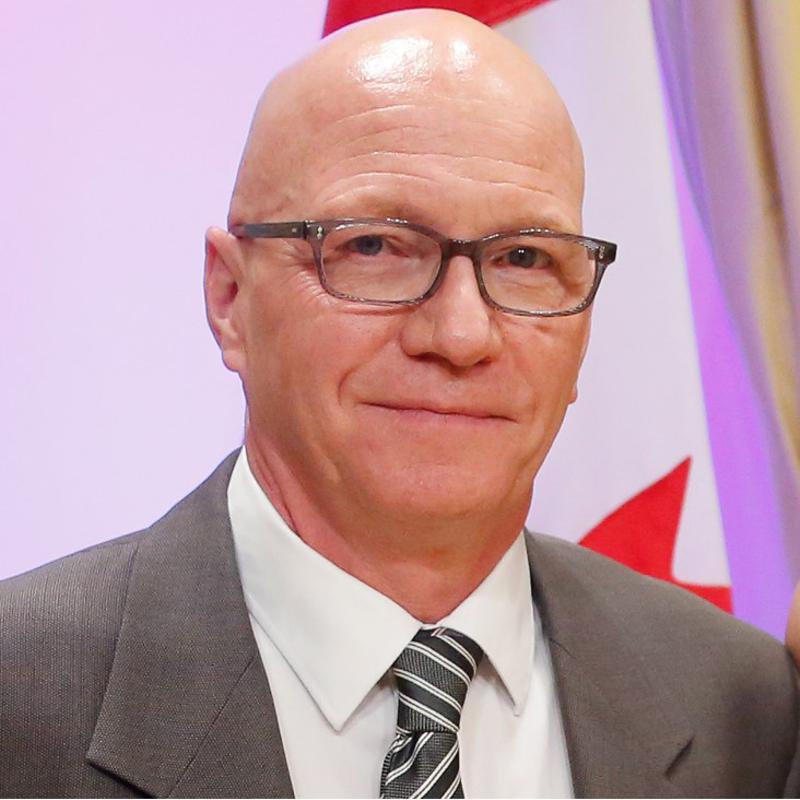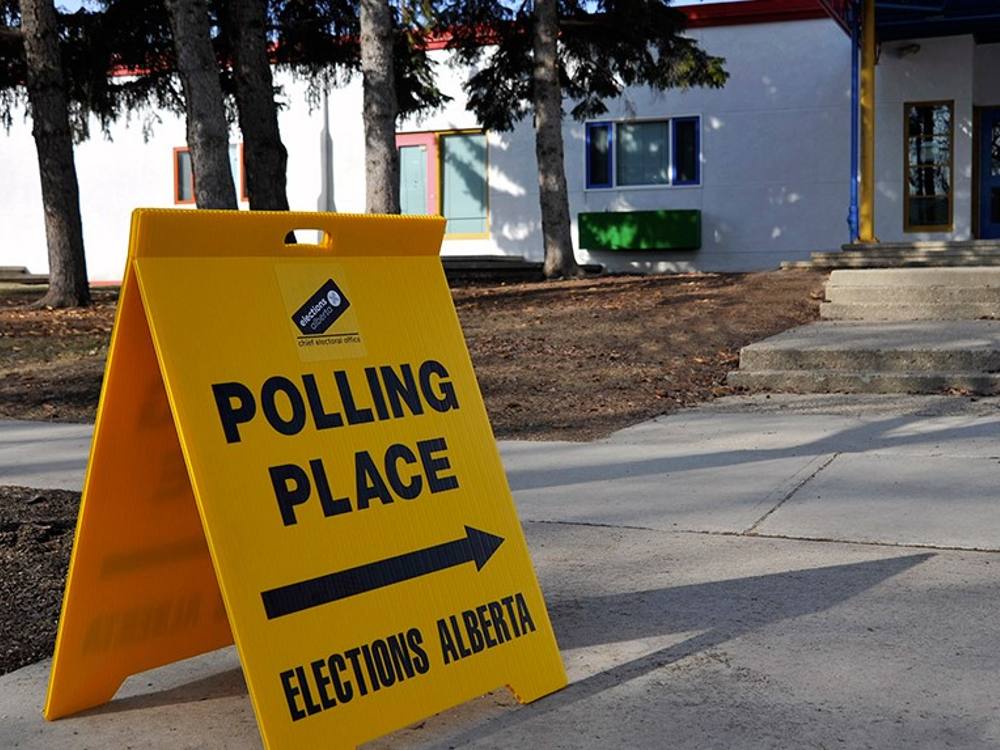For the second time in 18 months, Elections Alberta has produced a pre-election communications campaign so misleading that a political scientist says it may actually lead to voter suppression and he says the office can no longer be trusted to administer free and fair elections.
“I’m not questioning their legitimacy but at the same time the mistakes they're making are of such magnitude that they can influence the outcome of elections,” said Jared Wesley of the University of Alberta.
“My biggest worry is that we used to be able to turn to the Elections Alberta website for authoritative, accurate, legally grounded rules on how elections work.
“We have now reached the point where we cannot do that,” he said, adding that he has directed his students not to rely on information from the election authority’s website for academic papers.
In late 2019, the government of former premier Jason Kenney fired election commissioner Lorne Gibson while he was in the midst of investigating voter fraud allegations related to the 2017 United Conservative Party leadership election.
In October 2021, Elections Alberta provided incorrect information to municipal voters for a referendum question on equalization payments to the federal government, and then inexplicably failed to correct it.
And in advance of the looming provincial election in May, Elections Alberta provided information to voters about identification and registration, which it said was required to vote that Wesley and others say is misleading.
Wesley said the equalization referendum mistakes, the abrupt firing of the elections commissioner, and now the spread of misinformation about voter ID and registration “could cause reasonable people to conclude, without conspiratorial thinking, that Elections Alberta is not an institution to be trusted.
“They have lost the trust of a lot of Albertans on both ends of the political spectrum. This is not a good place for us to be seven weeks out from an election.”
On its website, social media and in mail outs and radio ads, Elections Alberta told voters that identification and registration were required to vote.
But in fact, Albertans don’t need identification to vote. They can sign an attestation form at the polling station confirming their eligibility. Or they can have someone vouch for their identity.
If a voter has not already registered, they only need to be added to the electors list when they cast their ballot on election day, May 29.
Following a crescendo of online criticism and a letter from the Alberta NDP, Elections Alberta changed the information on its website and on social media late last week and is expected to stop its radio ads.
Elections Alberta chief elections officer Glen L. Resler told The Tyee, "We’ve heard some feedback online about our register to vote campaign, and it tells us that the information was not as clear to some electors as we had intended. The bottom line is we want all Albertans to vote. We have revised the messaging in our online ads and on our website in response to the feedback we received."
Despite this, Wesley envisions problems from the confusion already created by Elections Alberta. Political candidates or their workers may tell a voter on the doorstep they can vote even if they don’t have ID.
“And that person pulls out a tweet or a web page from Elections Alberta and says, 'This says I can’t.' What is that candidate supposed to do? Because the candidate is right. But the citizen is also right in saying that the election authority is supposed to have the right answers for this.”
Potential to aid voter suppression
Wesley said Elections Alberta has also opened the door for voter suppression, especially in immigrant communities — which is where the voter fraud occurred in the 2017 UCP leadership vote.
“It's not that Elections Alberta is engaging in voter suppression,” he said. “It's that their comms material can be used by nefarious actors, to convince other people that it's not worth even trying to vote.
“Who does that advantage? Our research shows that visible minority communities in Calgary, for example, have switched en masse from the UCP to the New Democrats.”
“It's tough to tell what kind of impact this is going to have on the outcome of the election. But it's beyond that. This is about making sure that everyone has an opportunity to vote, that is eligible to vote.”
Wesley acknowledged most Albertans have proper identification and won’t care, or be affected, by the misinformation from Elections Alberta. But he said no one should be disenfranchised, even unintentionally.
Those most likely to be dissuaded from voting, he said, are those “least likely to have ID and people that are least likely to trust or are knowledgeable about what government agencies like Elections Alberta do. He said that is typically immigrants, visible minorities, Indigenous people and seniors who sometimes don’t have up-to-date, active identification.
From his research, Wesley said he knows those groups are more likely to vote NDP than UCP. But the misinformation spread by Elections Alberta could also affect the UCP vote.
Andrew Leach is a University of Alberta economics and law professor who sharply criticized Elections Alberta during both the equalization referendum fiasco and this current communications mess. He pointed to a brochure sent to rural Albertans that falsely stated they must have ID that includes a physical address, rather than simply a post office box address.
“This isn't just about people living in difficult circumstances in urban environments,” Leach said. Someone living on a farm or acreage may pick up the brochure containing misleading information on Election Day and “maybe that person doesn't vote.
“Maybe they don't drive the 10 minutes or half hour to wherever their polling location is.”
The UCP’s voter base is mainly in rural Alberta but Leach said it may also affect people who might vote for the NDP or the Alberta Party.
Oh, would you look at that, #ableg: @ElectionsAB changed their website to remove the previous language about needing to show ID to prove your name and address. Earlier this week vs now: pic.twitter.com/geH1C4RsKi
— Andrew Leach (@andrew_leach) April 14, 2023
Leach stressed he is not an expert in elections but he said it is common sense that Elections Alberta should have produced a campaign that encourages people to vote, not discourages them.
“You should not be leading with an exclusion,” he said. “They should be leading with, 'Every Canadian citizen resident of Alberta has the right to vote. If you meet that basic standard, you can vote.'"
And then, he said, Elections Alberta could have educated people about what has changed from last time they voted and how it would be helpful if they had ID with them and not just their voter card.
A spokesperson for chief electoral officer Glen Resler said he was too busy to do an interview.
“That is the biggest shame out of this whole story,” Wesley said. “If they were more transparent and open, and answered in a good faith way to criticism from folks that know the legislation, that know how elections work, I think we would be in a better place.
“But we keep revisiting their problems because they keep making mistakes.”
If you have any information for this story, or information for another story, please contact Charles Rusnell in confidence via email. ![]()
















Tyee Commenting Guidelines
Comments that violate guidelines risk being deleted, and violations may result in a temporary or permanent user ban. Maintain the spirit of good conversation to stay in the discussion and be patient with moderators. Comments are reviewed regularly but not in real time.
Do:
Do not: